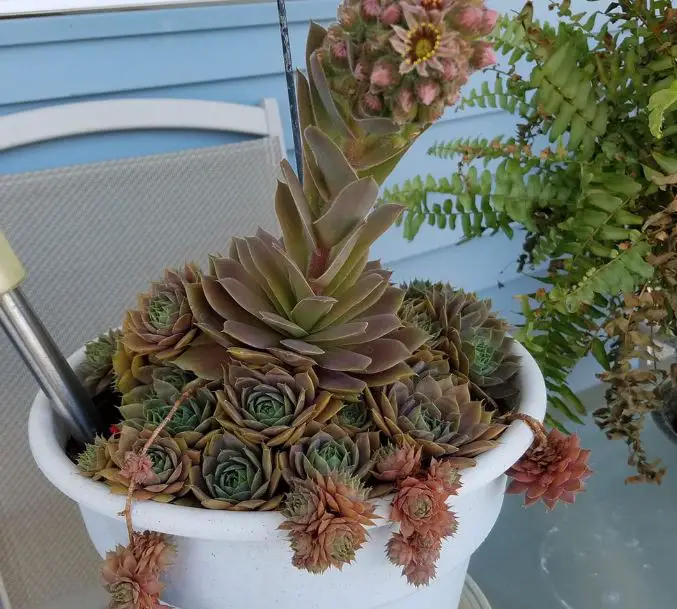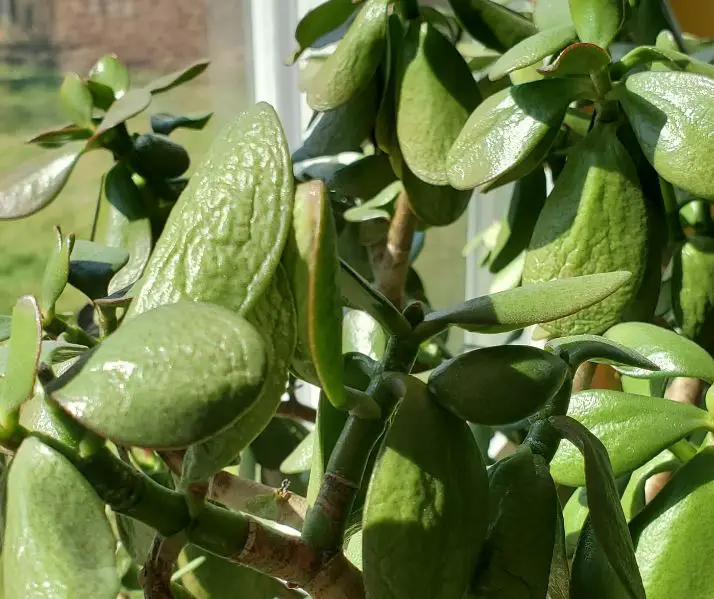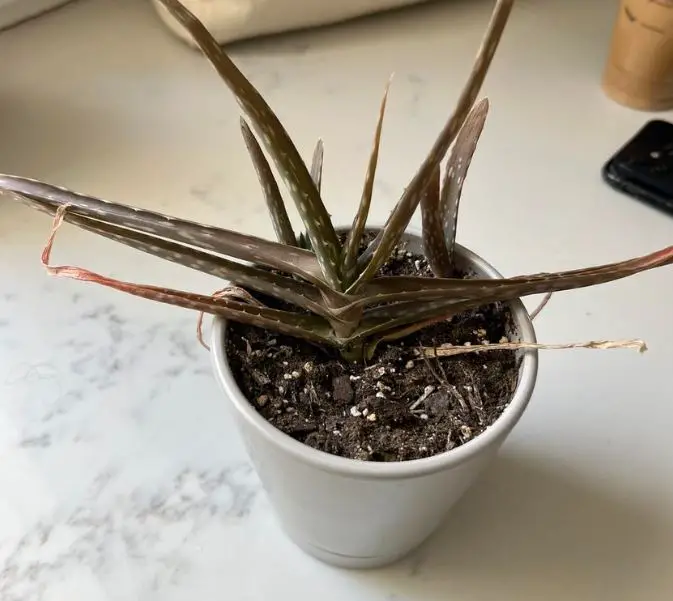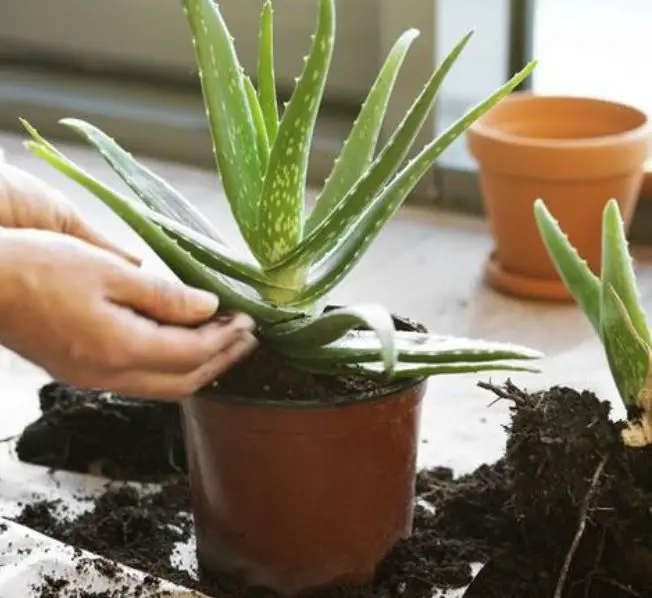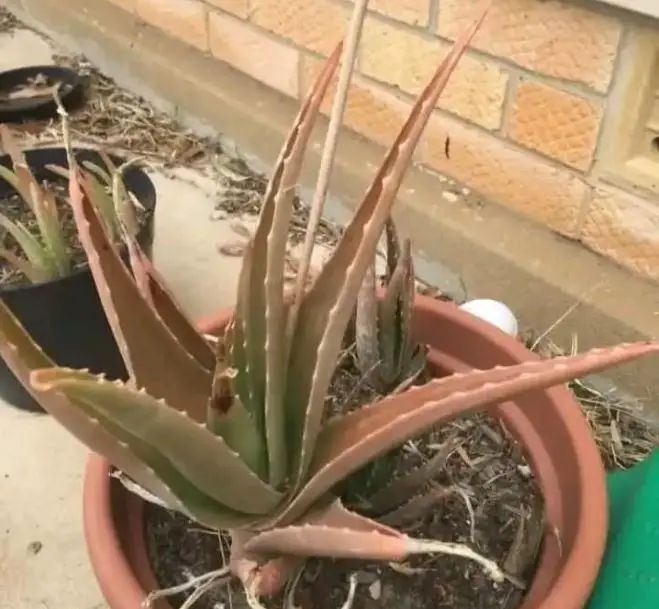7 Succulents Poisonous to Dogs and Other Pets
Succulents are visually striking and low-maintenance plants. If you are a pet owner, it’s important to know that not all succulent species are safe to keep around dogs or cats. In this article, I’ll explain which succulents are poisonous to dogs and what to do if your pet ingests them.
Some of the poisonous succulents to dogs include the string of pearls, jade plant, aloe vera, pencil cactus, snake plant, kalanchoe, and the crown of thorns. Keep these succulents away from your pets and if your dog or cat ingests any of them, contact your veterinarian immediately.
Are succulents poisonous to dogs?
Yes, some species of succulents are poisonous to dogs and cats. If ingested, they can cause various symptoms including vomiting, diarrhea, drooling, lethargy, and seizures. So, if you have poisonous succulents in your home, you can place them where your pets cannot reach them.
I always place poisonous cacti and succulents at a higher place where my dog cannot reach them. I realized felines are good at climbing and placing the plants on higher shelves or repotting them in hanging baskets won’t deter them. You can use cages or fences if you have a cat.
The most important thing is to know which succulents are safe and which are poisonous. This can help you come up with a way of keeping them away from vulnerable family members. If by bad luck a pet ingests a toxic plant, just contact your veterinarian immediately for help.
Succulents poisonous to dogs and cats
Dogs and cats are curious animals and you can’t just be comfortable with any plant around them. The following succulents can be poisonous to your pets.
String of pearls
String of pearls (Senecio rowleyanus) is a popular houseplant due to its catchy appearance. It has flowers arranged in a beard-like pattern and with no doubt, curious pets like cats and dogs may easily ingest the plant.
In humans this succulent is rated as toxicity classes 2 and 4 by the University of California, Davis in a 2012 publication titled, Safe and Poisonous Garden Plants. This means the string of pearls plant may cause minor stomach issues such as vomiting or diarrhea when ingested.
Additionally, contact with the plant’s sap can cause skin irritation or a rash. These effects can be the same or worse in pets. In severe cases, the string of pearls can be fatal to dogs. You should call your vet immediately if your dog or cat has seizures, lethargy, or hypersalivation.
Pencil cactus
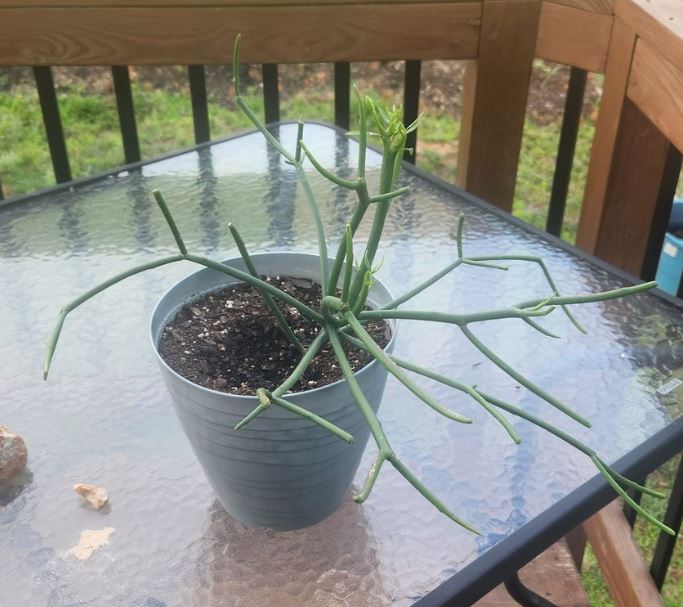
The pencil cactus (Euphorbia tirucalli) is a tree-like succulent with thin smooth branches. This plant produces poisonous latex that can cause severe skin irritation and temporary blindness in humans and animals. If ingested, the milky sap can cause severe burns to the mouth, lips, and tongue.
This is an adaptation feature that deters wildlife from ingesting the plant in large amounts. Pets or any animal that ingests any material from the pencil cactus will show symptoms of related to gastro irritation. This includes vomiting, diarrhea, drooling, and lethargy.
If you suspect that your pet has ingested pencil cactus sap by biting on the plant, call your veterinary immediately. It is suggested to keep this plant away from your pets and wear eye protection gear and gloves when handling it.
Jade plant
The Jade plant (Crassula ovata) also known as the money tree is a common houseplant with low maintenance needs. I love its star-shaped pink and white flowers that bloom in the winter. However, this plant contains toxic compounds that can be harmful to pets including dogs, cats, and horses.
There are claims that the jade plants can cause skin irritations in humans although this is yet to be proven. Pets that ingest jade plant may show various symptoms including vomiting, diarrhea, drooling, and even seizures. If you think your pet has eaten a Jade plant, call your veterinarian immediately.
Snake plant
The snake plant (Dracaena trifasciata) also known as mother-in-law’s tongue is a popular houseplant that has a colorful appearance. It’s a low-maintenance plant but it contains saponins that can cause mild gastrointestinal upset in humans and pets.
If ingested in large amounts, snake plants can cause more severe symptoms including vomiting, diarrhea, abdominal pain, and seizures. If you suspect that your pet has consumed snake plant leaves, contact a veterinary immediately for help.
Aloe vera
Aloe vera is a popular succulent around the world. It produces a clear gel commonly used in the manufacture of cosmetic products for use on the skin as a topical medication. In some people, aloe vera can cause allergic reactions including mild itchiness and redness or swellings.
Oral ingestion of aloe vera is potentially toxic and the extract is listed by the California Office of Environmental Health Hazard Assessment as one of the substances that can cause cancer in the state.
Consuming aloe vera orally may cause abdominal cramps and diarrhea in pets and humans. Symptoms of aloe vera poisoning in cats and dogs can vary from mild to severe depending on the amount of the material consumed.
Kalanchoe
Kalanchoe is a group of succulents cultivated as houseplants and landscape ornamental plants. These succulents are poisonous to pets and dogs are reported to be particularly sensitive to the cardiotoxic effects of Kalanchoe.
The plant’s toxins can interrupt the animal’s ability to control electrolytes in their bodies, resulting in abnormal heart rate and seizures.
Other symptoms in dogs and cats ingesting this plant were vomiting, diarrhea, and lethargy. Kalanchoe poisoning can be fatal in pets and livestock if not treated right away. If you think your dog has consumed any part of a kalanchoe plant, contact a veterinary immediately.
Crown of thorns
The crown of thorns (Euphorbia milii) also known as the Christ plant is a woody shrub with thorny stems. It is often grown in landscapes as an ornamental plant due to its low maintenance and beautiful red or yellow bracts. However, this plant is poisonous to both humans and domesticated animals.
The crown of thorns oozes a sap from its stems and leaves that contains phorbol ester, a toxic substance that causes irritation on contact with skin or eyes. If ingested, pets can show various symptoms including severe stomach pain, irritation of the mucous, and vomiting.
If you are handling the crown of thorns plant, wear protective gloves and avoid any contact with the sap. You should also keep the plant away from children and pets. If you suspect that your cat or dog has ingested any material from the crown of thorns, seek veterinary help immediately.
Note: Cactus spines are usually not poisonous but they can cause pain, swelling, and severe allergic reactions when they get into the skin.
Final thought
Succulents are popular plants in our homes but some of them can be poisonous to our pets. If you buy a succulent, I recommend you request the seller to label it with both the common and scientific names. This can help veterinarians to provide a quick treatment in case your pet is poisoned by the plant.
The best way to protect your pets from toxic plants is to keep them away. You can suspend them in a hanging basket, place them on high shelves or cage the plants. If you suspect that your dog, cat, or livestock has ingested a poisonous succulent, don’t hesitate to call a veterinarian.
My name is Diane M Lewik, and I am the founder of this website. I am a degree holder in plant biology from the University of California – Berkeley. Over the years, I have cultivated a vast collection of succulents and I have learned a great deal about how to grow and care for these unique plants. Feel free to ask any questions in the comment section below.
